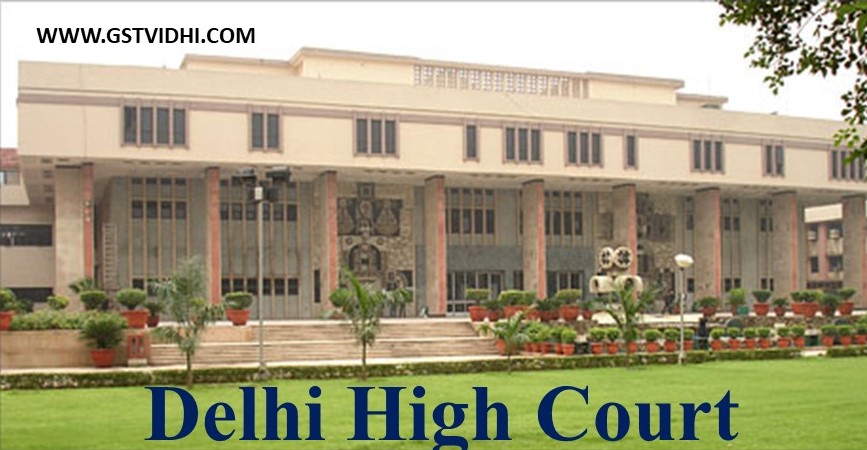
Delhi High Court Quashes Retroactive GST Registration
Cancellation for M/s Oscar Enterprises, Limits Cancellation to Date of Show
Cause Notice
By Yogesh Verma (CS/ LLB) / 2 min. read / GST Case Law
Case Analysis: M/s Oscar Enterprises Vs. Commissioner of Delhi
GST and Another
Case No.: W.P.(C) 12901/2024
Date of Order: September 30, 2024
Name of Court: High Court of Delhi, New Delhi
Coram:
Hon'ble Mr. Justice Yashwant Varma and Hon'ble Mr. Justice Ravinder Dudeja
Summary of Case: M/s Oscar Enterprises, through its
proprietor, approached the Delhi High Court to challenge the cancellation of
its Goods and Services Tax (GST) registration. The cancellation was ordered
retroactively to November 12, 2019, based on a show cause notice (SCN) issued
on September 9, 2022. The petitioner contended that such retroactive
cancellation was arbitrary and lacked sufficient reasoning.
Facts of the Case:
·
Issue
Raised: The petitioner, M/s Oscar
Enterprises, was issued a show cause notice on September 9, 2022, alleging
non-functioning or non-existence at its registered principal place of business.
·
Petitioner’s
Failure to Respond: The petitioner did not respond to
the show cause notice, leading to the issuance of a final order on September
27, 2022, which cancelled the GST registration.
·
Retroactive
Cancellation: The GST authorities applied the
cancellation order retrospectively from November 12, 2019, without providing
any specific reasons for such retroactive action.
·
Petitioner’s
Argument: The petitioner contested the
retroactive cancellation, arguing that the GST authorities cannot cancel a
registration retroactively without providing a valid justification for doing
so.
Submission by Petitioner:
·
Challenge
to Retroactive Cancellation:
The petitioner argued that while the GST authorities are empowered to cancel a
registration with effect from a past date under certain circumstances, this
power must be exercised judiciously, and the reasons for such retroactivity must
be clearly stated in the cancellation order.
·
Legal
Argument: The petitioner pointed out that the
cancellation order provided no reasoning for why it was being applied
retrospectively from November 12, 2019. The cancellation, according to the
petitioner, should only take effect from September 9, 2022, the date of the
show cause notice.
·
Reliance
on Precedents: The petitioner cited several recent
judgments, including Riddhi Siddhi Enterprises vs. Commissioner of Goods and
Services Tax (CGST), where the court had ruled that retrospective cancellations
require proper justification. The petitioner argued that in their case,
such justification was absent, making the retrospective cancellation arbitrary.
Submission by Respondent:
·
Defense of
the Order: The respondent, represented by the
Commissioner of Delhi GST, argued that the cancellation was based on the
petitioner’s failure to respond to the show cause notice and the findings that
the petitioner’s business was not functioning at its registered principal
place.
·
Support
for Retroactive Cancellation:
The respondent did not provide any specific reasons for the retroactive effect
but maintained that the cancellation order was validly issued because of the
non-functioning of the petitioner’s business.
Findings of the Court:
·
Case Law
Considered: The court reviewed its recent
ruling in Riddhi Siddhi Enterprises vs. Commissioner of Goods and Services Tax
(CGST), where it was established that retrospective cancellation of GST
registration is permissible but must be accompanied by clear reasoning. In
that case, the court held that retrospective cancellations cannot be
applied mechanically; the reasons must be recorded in the order itself.
·
Failure to
Provide Reasons: In the present case, the court
found that the show cause notice issued to the petitioner on September 9, 2022,
made no mention of an intention to cancel the registration with retrospective
effect. Additionally, the final cancellation order dated September 27, 2022,
did not provide any reasoning for applying the cancellation retroactively to
November 12, 2019.
·
Abuse of
Power: The court emphasized that while the
GST Act allows for retrospective cancellations, such powers should not be
exercised arbitrarily or routinely. Retrospective cancellations have serious
implications, including the denial of Input Tax Credit (ITC) to customers of
the taxpayer during the affected period. Therefore, retrospective cancellations
must be supported by specific facts and reasons.
·
Court’s
Decision: The court concluded that the
cancellation order, as it applied retrospectively, could not be sustained
because it lacked reasoning. The court found that there was no justification
provided for why the cancellation needed to take effect from November 12, 2019.
The court ruled that the cancellation could only be effective from the date of
the show cause notice, i.e., September 9, 2022.
Judgement of the Court:
·
Quashing
the Retroactive Cancellation:
The court quashed the order of cancellation to the extent that it applied
retrospectively from November 12, 2019. The court held that the cancellation
would take effect from September 9, 2022, which was the date of the show cause
notice.
·
Liberty to
Respondent: The court also clarified that its
order would not prevent the respondent (GST authorities) from initiating
further proceedings in accordance with the law, provided they give proper
notice and follow due process.
Conclusion:
This judgment provides a significant clarification on the exercise of the power
to cancel GST registrations with retrospective effect. The court reaffirmed
that while the GST authorities have the discretion to cancel registrations with
retrospective effect, such action cannot be arbitrary. The reasons for
retroactive cancellations must be explicitly stated in both the show cause
notice and the final cancellation order. In this case, the lack of such
reasoning rendered the retroactive cancellation invalid.
Disclaimer: All the
Information is based on the notification, circular and order issued by the
Govt. authority and judgement delivered by the court or the
authority information is strictly for educational purposes and on the
basis of our best understanding of laws & not binding on anyone.
Find the Attachment (Press on Click Here )
Click here